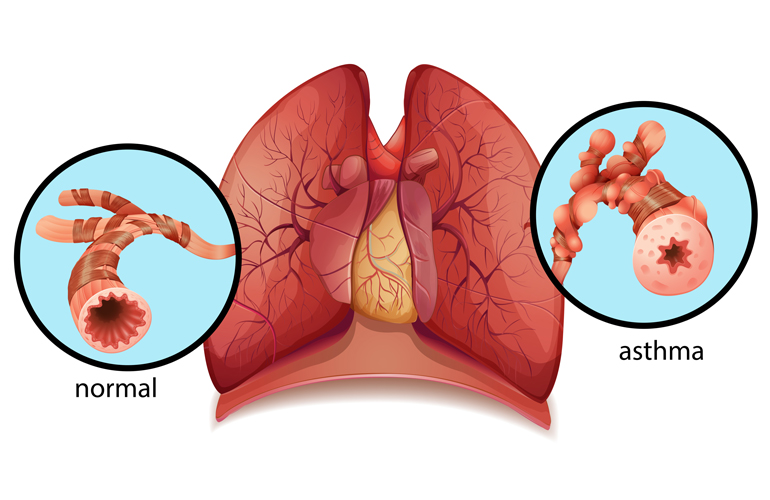- Home
- Departments
Departments Of Asthma & Allergic Lung Disorders
AsthamaAsthma and allergic lung disorders are respiratory conditions characterized by inflammation and narrowing of the airways, leading to symptoms such as wheezing, shortness of breath, chest tightness, and coughing. These conditions are often triggered by exposure to allergens, irritants, respiratory infections, or physical activity.
Asthma:
Asthma is a chronic respiratory condition characterized by inflammation of the airways, which causes them to become swollen and narrow. This inflammation can lead to increased mucus production and constriction of the muscles surrounding the airways, making it difficult to breathe. Asthma symptoms can vary in severity and frequency and may be triggered by various factors, including allergens (such as pollen, dust mites, or pet dander), respiratory infections, exercise, cold air, smoke, or stress. Treatment for asthma typically involves medications to control inflammation and bronchodilators to relieve symptoms, as well as identifying and avoiding triggers whenever possible. In severe cases, asthma may require emergency treatment or hospitalization.
Allergic Lung Disorders:
Allergic lung disorders encompass a range of respiratory conditions caused by allergic reactions in the lungs. These disorders can include allergic rhinitis (hay fever), allergic bronchopulmonary aspergillosis (ABPA), allergic alveolitis (hypersensitivity pneumonitis), and eosinophilic pneumonia, among others. Allergic lung disorders occur when the immune system reacts abnormally to inhaled allergens, leading to inflammation and damage in the lungs. Symptoms can vary depending on the specific condition but may include coughing, wheezing, shortness of breath, chest tightness, and flu-like symptoms. Treatment for allergic lung disorders often involves identifying and avoiding triggers, as well as medications to control inflammation and relieve symptoms. In some cases, allergen immunotherapy or corticosteroids may be recommended to manage symptoms and prevent exacerbations.
Overall, asthma and allergic lung disorders are chronic respiratory conditions that can significantly impact quality of life if not properly managed. With appropriate treatment and lifestyle modifications, many individuals with asthma and allergic lung disorders can effectively control their symptoms and lead active, fulfilling lives. It's essential for individuals with these conditions to work closely with their healthcare providers to develop a personalized treatment plan tailored to their specific needs and triggers. Regular monitoring and follow-up care are also important for optimizing management and minimizing the risk of complications.

